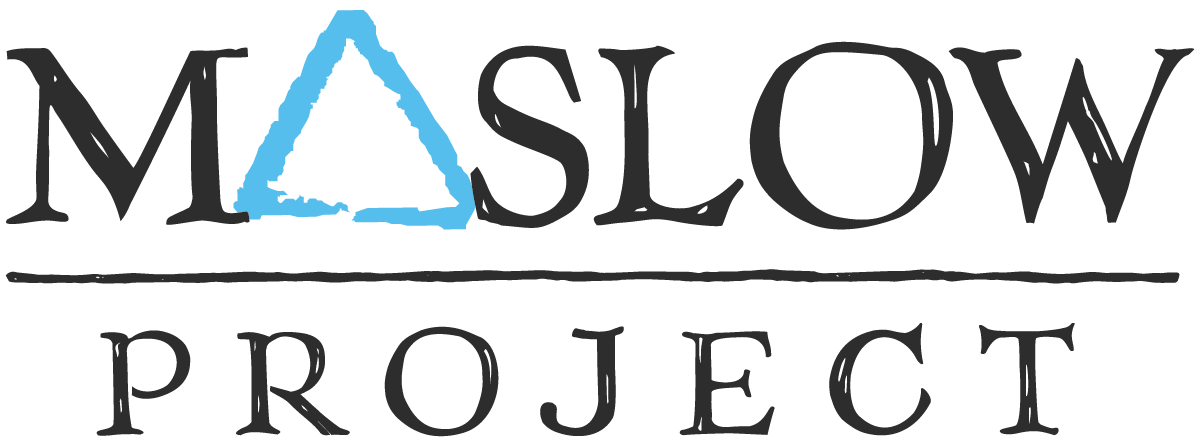
About Us
Did you know?
Homeless children are:
2x as likely to be hungry.
2x more likely to be absent from school.
3x more likely to need special education that goes unidentified.
4x times more likely to be sick.
4.5x more likely to be a homeless adult.
7x more likely to attempt suicide.
Stable housing can break the cycle of youth homelessness.
Life can be hard. Getting help should not be! We make our services available through public schools, community-based Resource Centers (in Jackson and Josephine County), and if that doesn’t work, our Outreach Team can provide services on the streets or through our mobile outreach to rural communities.
At Maslow Project, we realize that basic needs must be met before children and families can focus on higher goals. How can children be expected to concentrate in school when their bellies are empty and they slept on a crowded living room floor? How does a high school student study for the SATs when their desk is the front seat of a car? How does a young adult who’s been disconnected from family, school, and community, re-engage in a meaningful way when they’ve been in survival mode for so long? We know if families and children can stabilize, youth are far more likely to finish high school, have more positive long-term outcomes, and stop the cycle of homelessness.
Our vision is for every child to have a voice and a choice to shape their dreams.
Our program model is intentionally low barrier and easy access. We do our best to provide the help people ask for, in the way that best works for them. Our Outreach Workers, Advocates and Case Managers help people individually connect with the services and programs that best meet their needs and goals, and we stay with them along the way, lending encouragement and support.
Our services are 100% free to those we serve.
We believe we can end youth homelessness with partnership from our community through the support of our donors, grant funders, and government contracts. Grants and contracts are great in that they often help programs like ours expand and grow capacity. However, those are often unreliable funding sources and private gifts allow us to continue the full range of services and allows the most flexibility to meet our youth’s needs first and foremost. We have always been committed to very low overhead – making every dollar we receive – go further in helping those most in need.
Our Commitment to Equality
You matter. You are strong. We can do this together!
Maslow Project is committed to a welcoming and inclusive environment for all our program participants, staff, volunteers, and board members. We accomplish this through leadership, values, policies, and practices. We define diversity in terms of race, gender, religion, culture, national origin, language, sexual orientation, gender identity, physical abilities, age, parental status, immigration status, and socio-economics. We respect different experiences and cultures and will continually work to create an environment in which our clients, staff, and community members feel supported, recognized, and rewarded in making their best contributions to the mission of our organization. We are committed to advocating for our youth in public schools, systems and in our community!
Frequently Asked Questions
-
11 years old. This is because Maslow serves children and youth between the ages of 0-24.
-
10%. Roughly 1 in 10 students are identified as homeless each year.
-
Over 400 a year.
-
No. Most teens end up homeless due to abuse, economic hardships or neglect.
-
False: most homeless children and teens are part of an entire family all experiencing homelessness. Less than 1% of the youth we serve are runaways.
-
False: Maslow Project DOES provide basic needs as kids can’t aspire to high level goals if their survival needs aren’t addressed first. However, Maslow ALSO provides a variety of supports to help engage kids in school, gain life skills and work toward higher level goals in life such as college and employment.
-
“…lacking a fixed, regular, and adequate nighttime residence” will be considered homeless. You can find the official McKinney-Vento Act at the National Center for Homeless Education by clicking HERE.
-
The U.S. Department of Education has determined that factors to consider in determining whether housing is “substandard” include whether the housing “lacks one of the fundamental utilities such as water, electricity, or heat; is infested with vermin or mold; lacks a functional part such as a working kitchen or a working toilet; or may present unreasonable dangers to adults, children, or persons with disabilities.”
Children and youth who are sharing the housing of others due to loss of housing, economic hardship, or a similar reason are covered by the McKinney-Vento Act.
This can include unaccompanied youth who have run away from home, even if their parents state a desire for the youth to return home. Families who share adequate housing on a long-term basis due to preference or convenience would not be covered by the Act.
Maslow Project was named as one of the best nonprofits to work for in Oregon!





